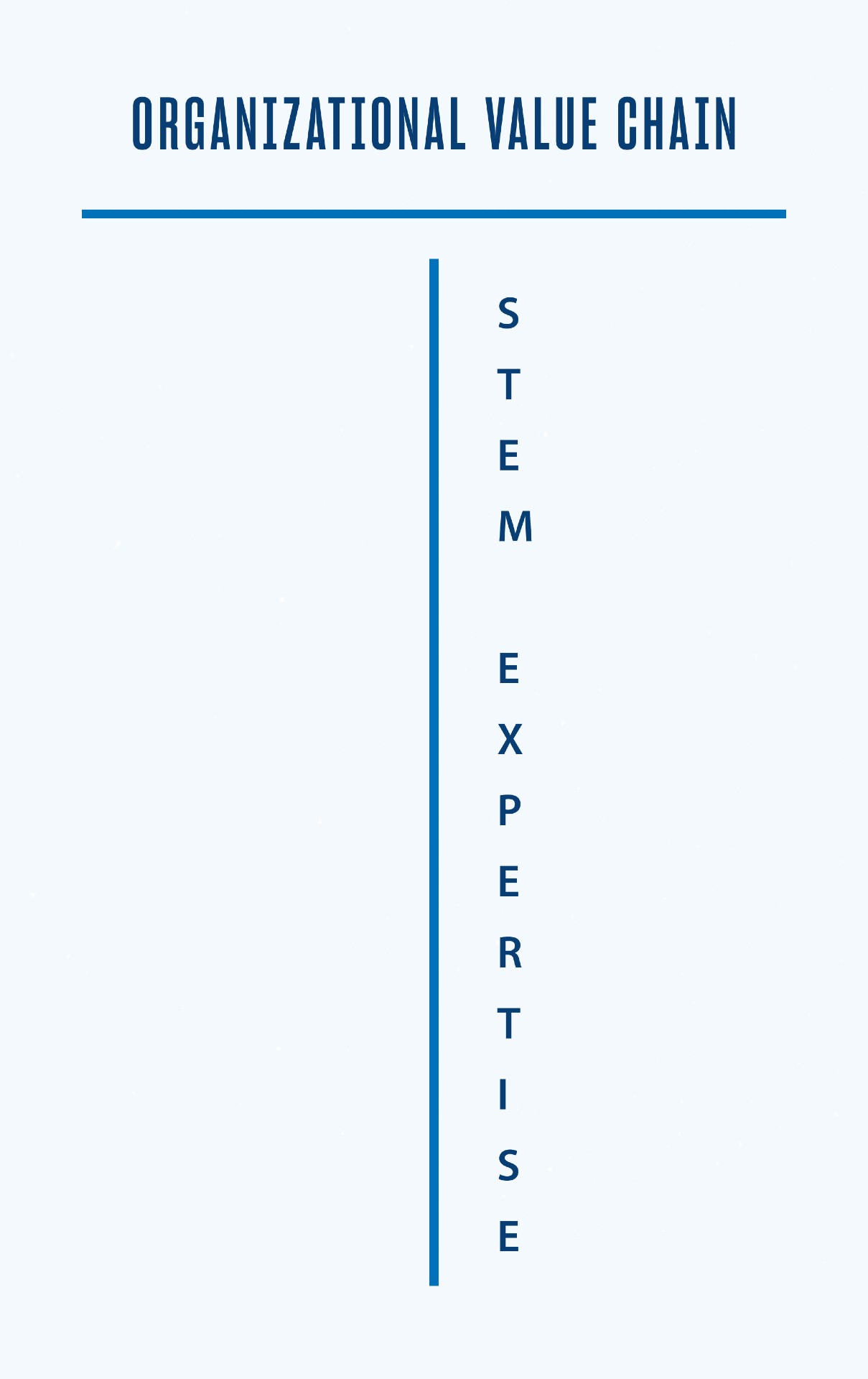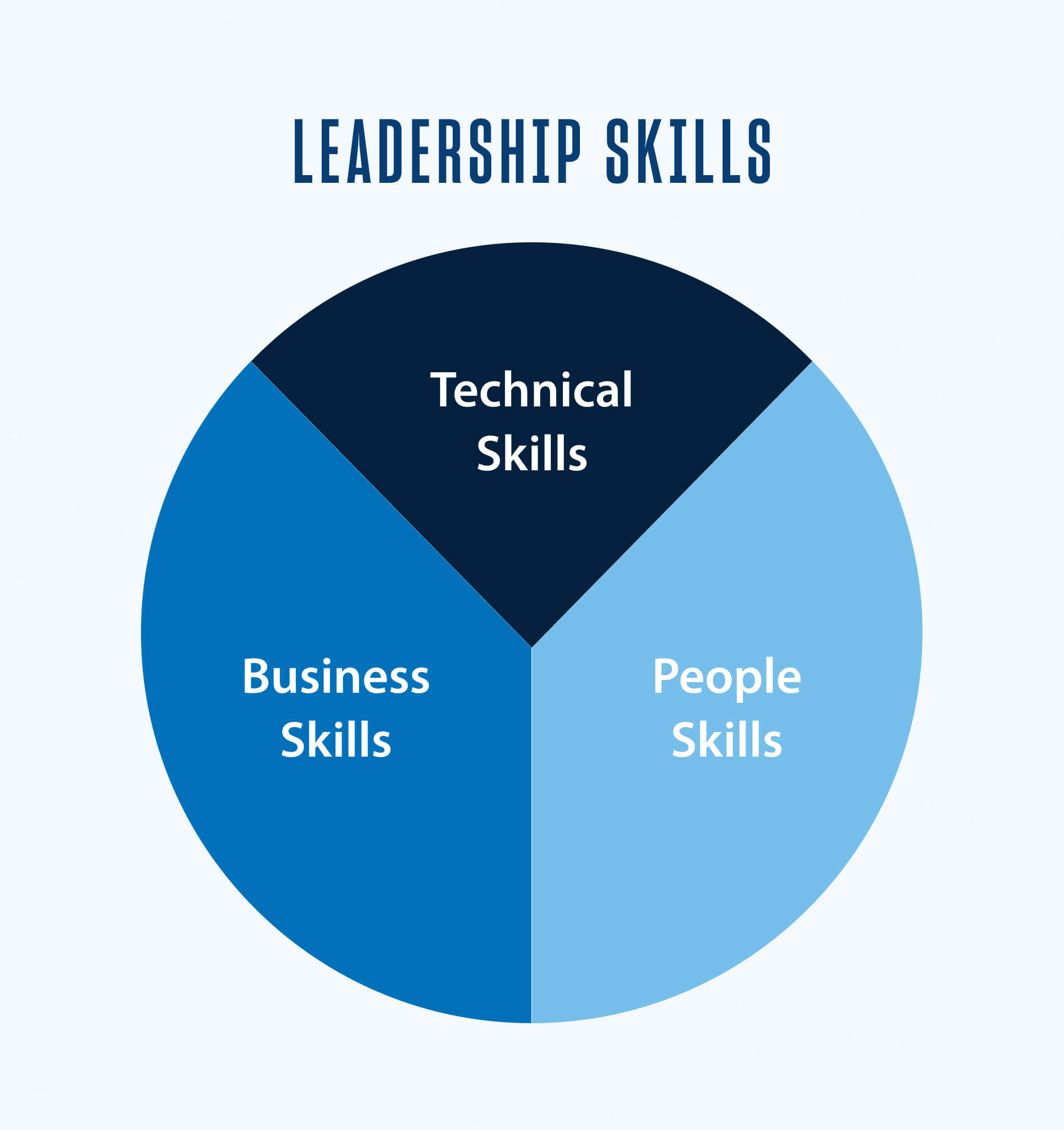It’s a critical time for engineering leadership. The profession is set to play a pivotal role in addressing many of our most pressing challenges, from climate change and aging infrastructures to providing equitable solutions for every population. At the same time, the field faces challenges of its own, including filling open positions, managing tight budgets, training new hires and implementing new technologies.
Effective leadership in engineering is about more than completing projects, it’s about helping engineering teams grow and advance. Great leadership can empower engineers to feel more fulfilled in their careers, which is important for a profession with an above-average turnover rate.
If you’re up to the challenge of becoming an engineering leader, here’s what you need to know.
What Is Engineering Leadership?
There are many ways to define leadership in engineering. At its most essential, it’s a confluence of deep industry knowledge and familiarity with many different aspects of a business or organization, from how it operates to its people.
You can think of engineering leadership as a “T” structure. There’s the vertical part, which provides a strong foundation of expertise in the fields of science, technology, engineering or mathematics (STEM). This would be your knowledge and skills gained within a particular discipline. These essential skills will always ground you with the fundamentals of technical knowledge and an understanding of particular concepts. That’s the depth of knowledge that provides support for the most important part of leadership.
The horizontal element represents your breadth of knowledge, which is your understanding of an organization’s value-chain. The specific industry doesn’t matter — it could be manufacturing, defense, energy, medical or life sciences. What is important is that you understand everything that comprises the value chain, whether it’s marketing, sales, business development or the delivery of a product.

Personnel is an essential element of that value chain. A great manager understands that they succeed when they provide their team the support they need to accomplish tasks and achieve larger goals. There are a few strategies you can employ to successfully lead an engineering team, including:
- Inspiring others to understand goals and assisting them in overcoming barriers to achieve them
- Knowing how to mobilize your team so they can execute both individual and collective tasks
- Creating a transformative vision that accounts for the larger objectives of the company
- Establishing an environment where employees feel safe and that enables them to thrive
- Working with your team to establish a career path that meets their goals and your needs
Once you understand these elements, you’re on the path toward becoming an engineering leader.
Why Is Leadership in Engineering So Important?
Changing industries and economies have forced organizations of all sizes to constantly adapt to a rapidly evolving engineering and technological landscape. No matter if it’s an IT startup or established tech giant, every company now faces the pressure of managing tighter deadlines as disruptions upend conventional understandings of different industries. And of course, all of this has to be done safely, securely and within budget.
With engineering at the forefront of progress and advancement for many businesses, the field has come a long way from the mistaken idea that an engineering leader is simply the person with the most technical knowledge. Today’s engineering leaders need a more holistic approach to management, the ability to adapt to changing circumstances and to work effectively with their own team and with other stakeholders.
To ensure their teams are effective, engineering leaders need to master the three different dimensions of technical, commercial and people skills.
Technical skills
Every engineer learns and gains technical knowledge over their career, but engineering leaders need to connect those skills to more abstract concepts. The number one challenge that engineering leaders face is how to assimilate everything they’ve learned into a skillset that can address any situation. Good leaders need to be able to work across disciplines, be quick to adapt and capable of collaborating with multiple departments.
Business skills
Most engineering undergraduate programs don’t cover the business or financial aspects needed to become an engineering leader. These aspects require you to understand elements such as:
- The profit and loss (PnL) of your company
- The profitability of your engineering team’s function
- The value that your team adds to the company’s bottom line
- How can you maximize the returns of your projects
Being able to account for these business aspects is crucial for the success of your organization and for growth and development of your team. Good engineering leaders work to ensure their company stays on top of industry changes and disruptions and avoids falling behind competitors.

People skills
The third — an often most overlooked — dimension is the people on your team. The more a leader can help the people on their team grow, the more the team can accomplish. Managing people, working with them, inspiring them and instilling important values — these are all essential elements of engineering leadership. Thanks to today’s increasingly hybrid and globalized workforce, engineering managers must lead distributed teams across a variety of environments, which can include accounting for differences in style, language and culture.
Many engineering leaders excel in one or maybe even two of these dimensions, but rarely all three. Most leaders are lacking in at least one of these dimensions; being able to master all three is what enables an effective engineering leader to lead their team toward success.
What Is the Impact of Successful Engineering Leadership?
Good engineering leaders are essential not just to keep a company’s projects and products on task, but also to create an environment that people want to work in. Successful engineering leadership:
- Is essential for a company’s growth and performance by helping to reduce turnover and increase employee engagement
- Ensures engineering teams can finish projects and develop products on-time and within budget
- Helps the team feel included and invested in the direction of the company and aligned with the company’s goals and vision
- Creates a space where employees are safe, feel heard and are comfortable providing important feedback
- Encourages team members to feel comfortable with failing — and learning from failure — to build trust and drive innovation
Thinking about real impacts, there is one project that comes to mind. Our team was asked to design and deliver a product to market within nine months. The challenge was this being a very complex high-technology new product introduction (NPI), which usually has a design and delivery time frame of 24-36 months.
Why the rush? We had a customer who told us, “if you can deliver it within nine months I’ll buy it. If you give it to me in 12 months I don’t need it.” The challenge we faced was how to design such a complex product and get it to the market in nine months, without sacrificing safety and quality, which are always table stakes. And on top of all that, we were also given a cost target.
So, when you’re given a task like this, with so many constraints and expectations, how can you rally your team together?
I had a boss who was an ex-submarine officer and what he used to tell me was, “if you want to be a good leader then you have to be in the trenches with your people.”
One of the mistakes that some leaders make is to find a single slogan or rallying point that they believe will impact everyone on the team equally. When, in reality, those individual inspirations are unique — especially when you lead technical individuals. For example, some team members wanted to do cross-functional work to further develop their cross-disciplinary skills and were more motivated when provided with those opportunities.
As an engineering leader, you have to really understand your team members. We’re fortunate that inquisitiveness and a desire to excel is innate in most engineers. You’ll find similar motivation to succeed with everyone you work with, but your challenge as a leader is to find everyone’s specific triggers. You have to know how to customize your approach to inspire every individual.
In this case, it was very difficult, but we succeeded by leveraging our entire ecosystem of tools, processes and people. We went through prototyping, we leveraged agile methodology and held multiple kaizen events. We leveraged the latest engineering modeling and simulation tools and outsourced where we could with known suppliers. We even created a Skunk Works-style model to better empower our people.
Granted, we weren’t able to complete the project in nine months — but we did it all in nine-and-half. Not only did we sell that product, to date we’ve sold 60 more in the span of two years.
“If you want to be a good leader then you have to be in the trenches with your people.”
How to Become a Leader in Engineering
To be a leader in engineering means having a balance of skills across all three dimensions. Your technical skills are important, but in many ways they will serve as the foundation to your business management and interpersonal skills.
There are some important steps and processes you should follow to establish yourself as an engineering leader — but if you’re interested in becoming a great leader, I want to suggest a few specific recommendations to follow.
- You’ll need to develop an awareness of business operations as well as commercial markets. This includes insight into the evolving tech product markets and how to adjust to disruption. Earning specialized certifications or an advanced degree related to business management or leadership in engineering — such as the Master of Science in Engineering Management and Leadership (MS-EML) program — can be beneficial to understanding the business dimensions of advanced leadership positions.
- Your daily responsibilities will revolve around not only motivating your teams, but also negotiating between parties, resolving disagreements and making decisions based on available data and resources. You’ll need to build up your skills and confidence to address these issues within your own team and to coordinate and communicate your decisions with other departments and stakeholders.
- You’ll need to be comfortable with mentoring and coaching. If you’ve never done it before, look for opportunities in hybrid roles such as “lead engineer” or “team lead” that can provide a mix of management and hands-on responsibilities. This will enable you to work more closely with others in a collaborative but also advisory role.
- As an engineering leader, you’ll have to make a trade-off between doing the work yourself and empowering someone else to do it, so learn to be comfortable with delegation. Volunteer for opportunities to lead teams or projects to start developing those insights.
- You can do a lot in the engineering field just by being inquisitive and open minded. Your desire to learn, to ask questions and to understand the fundamentals are vital to becoming a good leader. One thing I wish I had learned earlier in my career was that you have to be open to all the voices in the room.
I’ve made the mistake of paying attention only to those voices that aligned with my own thought process. And, looking back, I realize there were greater opportunities in paying more attention to those diverse opinions. The most important approach for any leader is to have the empathy for others and the courage to try different approaches out. Too often we think of leaders as the ones who impart knowledge, when in reality, they should be the ones most open to learning.




